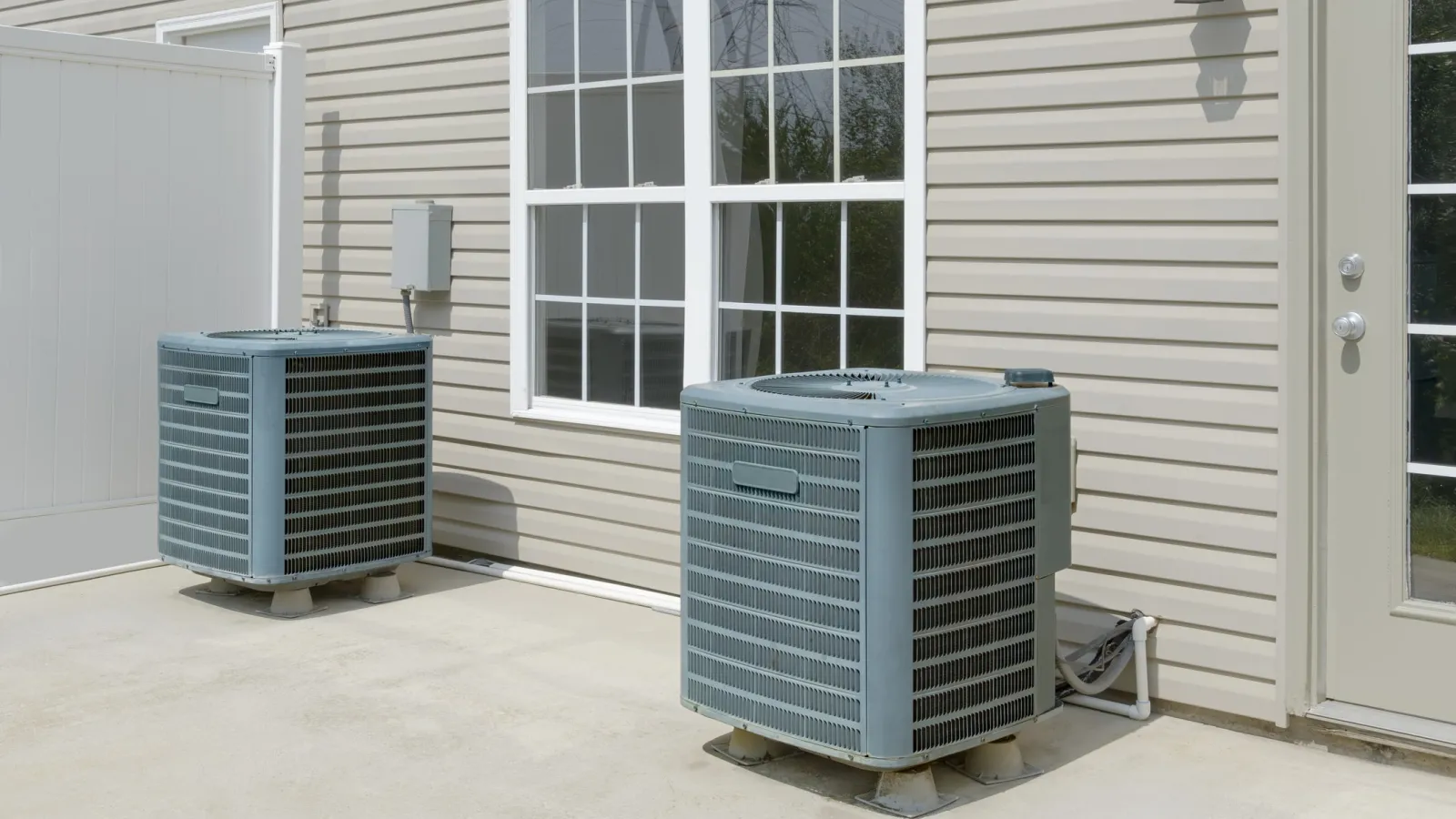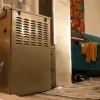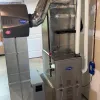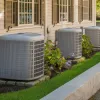With so many options for new air conditioners nowadays, it can be hard to decide what's best for your home.
Many people find themselves considering single stage vs. two stage air conditioners. Which one makes the most sense? Is the more expensive option worth it in the long run?
In this article, we'll do a deep dive into the differences between single stage and two stage units. We'll look at the pros and cons of each system and consider scenarios when it makes sense to choose one over the other.
What is a single stage air conditioner?
A single stage air conditioner is the kind of AC most people are used to.
As its name implies, a single stage unit has one stage of cooling. Whenever the indoor temperature rises above the thermostat setting, the air conditioner turns on from idle. It runs at one speed: full blast. It continues running at full blast until the thermostat setting is satisfied. Then it turns off.
For many years, this was the only kind of air conditioner you could get. Now it's considered the most basic kind of air conditioner out there, which is why it's sometimes referred to as a "standard" AC.
Single stage air conditioner pros and cons
Some advantages of single stage air conditioners include:
- Lower upfront costs: A single stage unit costs less to purchase than multi-stage air conditioners.
- Keep your thermostat: Some two stage and variable speed ACs require you to use a certain kind of thermostat. With a single stage AC, you can probably keep the thermostat you have.
- Simplicity: Since they're a straightforward, on/off machine, there's no learning curve. Also, parts are usually readily available, and every HVAC technician will know how to repair it. At PV, we're just as prepared to service two-stage and variable speed AC units as we are for standard air conditioners. But not all contractors can say the same.
But there are disadvantages with single stage units as well:
- Poorer efficiency: Since they only run at full capacity, a single stage unit is the least energy efficient type of air conditioner. They also turn on and off more often than two stage units, and there's a large power draw every time they turn on.
- Poorer humidity control: Single stage ACs sit idle until the temperature increases above the thermostat setting. During that idle time, they're not removing moisture from the air. As a result, your house feels more humid. Two stage and variable speed systems are much more effective in this regard.
- Noisy: These air conditioners can only operate at full blast, which means they move lots of air any time they're running. As such, they tend to be much noisier than systems with more advanced compressors and variable blower fan speeds.
What is a two stage air conditioner?
A two-stage air conditioning system uses a two-stage compressor. This means it can provide cooing in two different capacities: a high level of cooling and a low level of cooling.
The high level is the same as with a single stage air conditioner. The lower level is for when the house doesn't need as much cooling. In most homes, it just so happens, that the lower level is all you need most of the time.
Two stage air conditioner pros and cons
Advantages of a two-stage air conditioner include:
- Better comfort: The two-stage unit is less likely to overcool your home. When it runs at a lower speed, it provides more consistent, even cooling among rooms.
- Reduced humidity: During humid times of year, the two-stage unit does a better job of removing humidity than a standard AC. That's because it runs for longer cycles at a lower speed, which reduces idle time and ensures the AC removes more moisture.
- Better efficiency: Two-stage ACs don't cycle on and off as often as standard units, so there is less power draw. Plus, they run more often at the lower speed, which uses less electricity.
If there are any cons to a two-stage AC, they might be these:
- Higher upfront cost: A two-stage unit will cost more than a single-stage unit, although two-stage air conditioners aren't the most expensive options out there.
- New thermostat: You might not be able to keep your old thermostat with a two-stage unit. However, many people consider this an advantage because the new thermostat offers more options for comfort control.
Should you choose a single stage or two stage air conditioner?
Given the pros and cons, which option makes the most sense for your home? We recommend going with a single-stage air conditioning unit when:
- Up-front costs are a primary concern; single-stage ACs are less expensive to purchase.
- You're replacing an AC but keeping your furnace and only a single-stage unit will match.
On the other hand, a two-stage AC makes more sense when:
- You want the improved comfort features of a two-stage unit, such as better humidity control, and are willing to pay a higher purchase price.
- You want a system that's more efficient than the minimum standard.
Alternative to single stage and two stage air conditioners
Of course, you don't actually have to purchase a single stage or two stage AC. There's a third option, and it's in most respects the best choice of all.
A variable speed air conditioner is the most comfortable, efficient, quiet unit on the market.
If you care about those things, variable speed AC is 100% worth it.
Variable speed air conditioners have all of the benefits of two-stage air conditioners, except they're even better. Like way better.
While two-stage units are more efficient than single-stage units, two-stage units are closer to single-stage units in terms of efficiency and comfort than they are to variable speed air conditioners.
Put simply, two-stage AC is somewhat superior to single-stage AC. But variable speed ACs are vastly superior to both single and two-stage ACs!
Here's why that's the case:
- Variable speed units have modulating compressors and multi-speed blower fans. They ramp up and down to meet your home's precise cooling needs. By comparison, two-stage ACs just have two compressor stages.
- The run cycles on variable speed units are very long. In fact, they almost never turn off, instead running at a very low speed most of the time. This provides outstanding humidity control and consistent indoor comfort.
- They've got dehumidification modes, so you can run the variable speed AC during the fall and spring at a low level just to keep indoor humidity down.
- The long run cycles and low speeds provide the most energy savings compared to all other central air conditioning options. Variable speed systems are the most efficient ACs you can buy.
While variable speed air conditioning systems cost more than two-stage and standard units, they're currently less expensive than ever thanks to Georgia's energy rebate program! Qualifying homeowners can save thousands on a variable speed heat pump system through this remarkable, limited time rebate program!
Note that some HVAC system manufacturers now make entry level variable speed air conditioners and heat pumps for a lower cost than many two-stage units. If you can get a variable speed AC for the same or lower cost than a two-stage system, that's a much better solution!
Conclusion: There are air conditioner options for all needs and budgets
The best part of the single stage vs two stage air conditioner conversation? There's an AC out there for every household.
Regardless of your needs and budget, you can end up with the perfect air conditioning system for your home. If you live in Metro Atlanta and have questions about your home's next central AC system, PV Heating, Cooling & Plumbing can help!
Give us a call today at (404) 798-9672 or schedule a consultation online!





